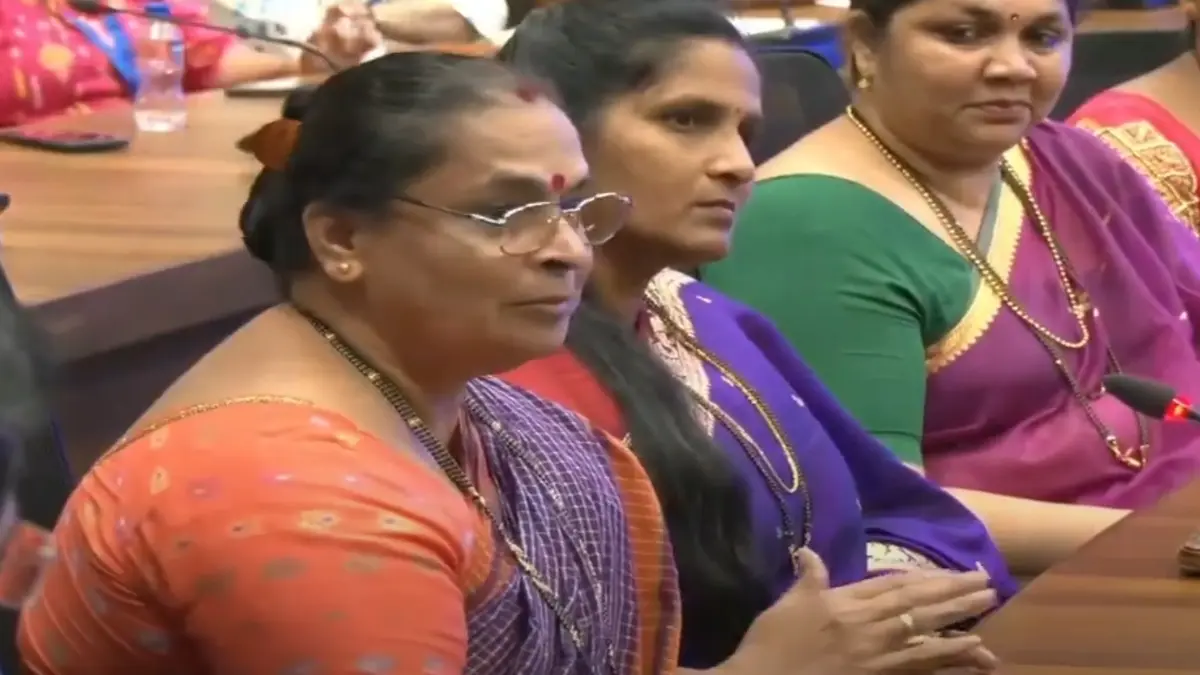
In a noteworthy move to empower women and preserve cultural heritage, Goa’s ‘Lakhpati Didi’ initiative is making waves. This ambitious program aims to support 11,000 women by 2024 through the revival of Kunbi saree weaving and the formation of self-help groups (SHGs).
Empowering Women:
The ‘Lakhpati Didi’ initiative is designed to promote financial independence among women in rural Goa. By engaging in the traditional craft of Kunbi saree weaving, women are not only earning a livelihood but also preserving a vital part of Goan heritage. “This initiative is a game-changer for us,” says Sushila Naik, a participant from Pernem. “We are learning new skills and earning money, which helps us support our families.”
VIDEO | Goa's 'Lakhpati Didi' initiative empowers women through Kunbi saree weaving and self-help groups. Aiming to support 11,000 women by 2024, the program promotes financial independence and cultural heritage.
(Full video available on PTI Videos – https://t.co/n147TvrpG7) pic.twitter.com/UY9hpsgBCM
— Press Trust of India (@PTI_News) October 28, 2024
Cultural Revival:
The Kunbi saree, known for its distinctive red and white checks, is a symbol of Goa’s rich cultural history. Traditionally worn by the Kunbi and Gawda tribes, these sarees are now being woven by women across the state. “Reviving the Kunbi saree is not just about fashion; it’s about reconnecting with our roots,” explains textile designer Poonam Pandit, who has been instrumental in the project’s success. Visit the official website for all the details.
Support and Training:
The initiative provides women with the necessary tools and training to master the art of weaving. “We offer comprehensive training programs that cover everything from basic weaving techniques to advanced designs,” says project coordinator Anjali Desai. “Our goal is to ensure that every woman can produce high-quality sarees that can compete in the market.”
Economic Impact:
By 2024, the ‘Lakhpati Didi’ initiative aims to make a substantial economic impact. “We are targeting to support 11,000 women, helping them become financially independent,” states Goa’s Minister for Women and Child Development, Vishwajit Rane. “This program is a testament to our commitment to women’s empowerment and cultural preservation.”
The success of the initiative is also attributed to the strong community bonds and collaboration among the women. “Working together in self-help groups has created a sense of unity and purpose,” shares participant Maria Fernandes. “We support each other and celebrate our achievements together.”
As the program progresses, there is a growing sense of optimism among the participants. “We are confident that this initiative will bring lasting change,” says Desai. “It’s not just about earning money; it’s about building a better future for our families and preserving our heritage for the next generation.”
